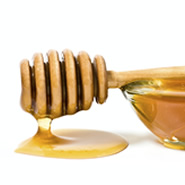
Allergies and extreme reactions
Allergy is an abnormal reaction by the body when it's been exposed to certain substances, either by inhaling or swallowing, injection or touch. It results in an excessive production of antibodies and various symptoms, both respiratory or of the skin. Allergies are becoming increasingly common and can start at any age, as well as often being hereditary.
When it comes to allergies, pollen and dust are the worst culprits
Allergies are the result of an extreme response by the immune system to substances, or allergens, that don't provoke reactions in normal subjects. In theory any substance can provoke an allergy, but at the top of the list of allergens are pollen, spores and mold, but also dust, food, drugs, animal fur, and materials like nickel and latex.
Rhinitis isn't just a seasonal ailment
Rhinitis is a respiratory allergy that causes itching and a runny nose, sneezing, watery eyes and sometimes a sore throat. The blocked feeling in the nose can last for a few hours. When it's a seasonal condition, it's linked to an allergy to pollen and happens mostly in springtime, but if you suffer from rhinitis all year round, it could be down to other allergens like dust and mold. It's been estimated that at least 50% of people who suffer from allergic rhinitis also have asthma: in cases like this, the symptoms are even more severe, because breathing is even more difficult.
Bronchial asthma: a tale of inherited allergies
Bronchial asthma is an allergy of the lungs that can start at any age, but it's often hereditary. Exposure to an allergenic substance like pollen, house dust or animal fur can bring on a respiratory crisis. Breathing turns to wheezing, and there’s a feeling of suffocation, as well as repeated coughing spasms.
Allergic cross-reactivity can cause unexpected reactions
An allergic reaction can become cross-reactive if the afflicted person reacts allergically to more than one substance that seem to be completely separate from each other. An example is a food allergy caused by hypersensibility to pollen; people who suffer from allergic rhinitis to birch pollen can also react when they eat an apple or some nuts.









